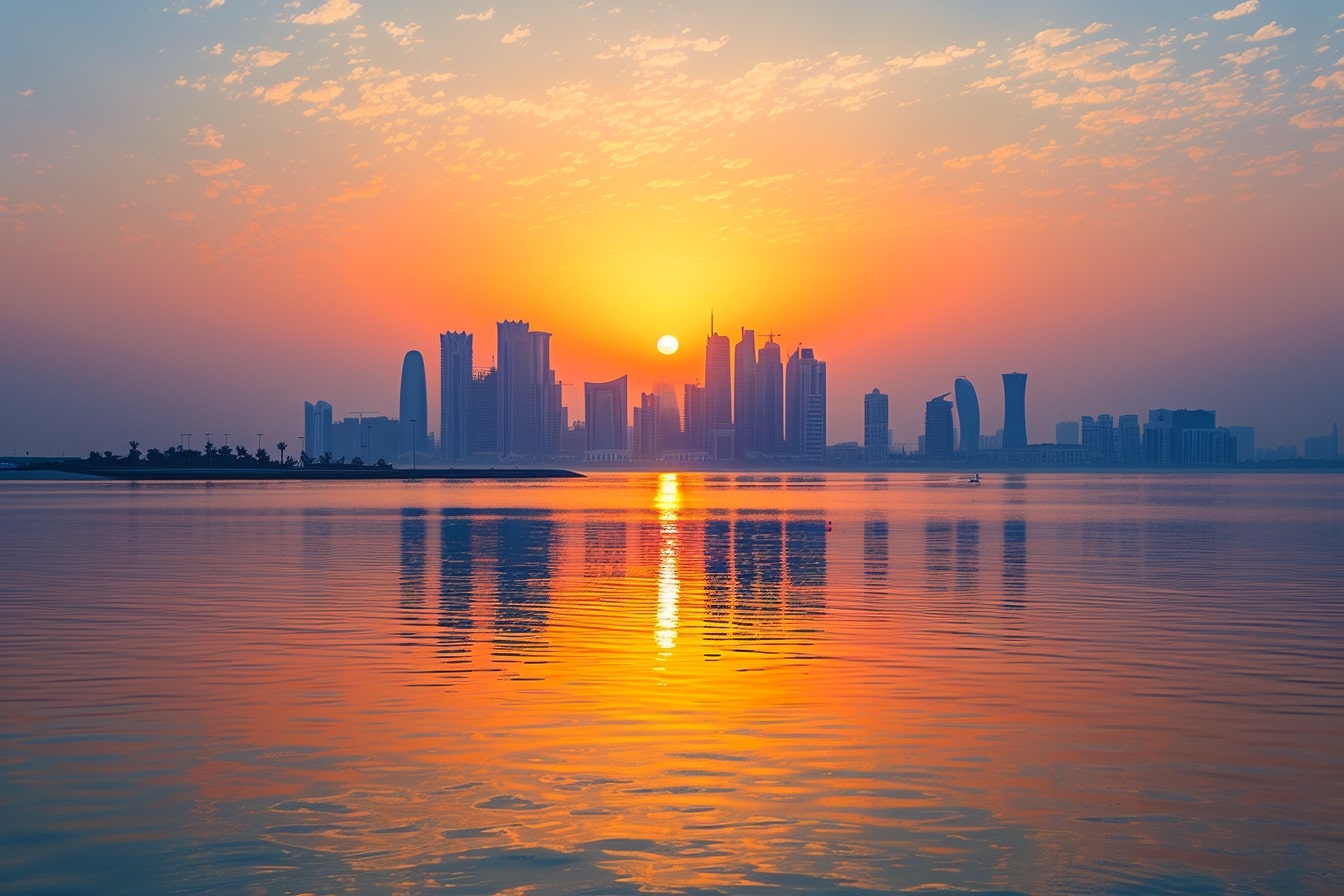
This is an AI-generated image created with Midjourney by Molly-Anna MaQuirl
The UAE's first artificial intelligence minister, Omar Al Olama, has committed to a strategy emphasizing global collaboration in the race for AI supremacy. He states that G42, an AI champion in Abu Dhabi, has secured an investment of $1.5bn from US tech giant Microsoft in April 2024.
Olama believes we should be selective about who we work with, emphasising Chinese AI companies in particular. He affirms the significance of a responsible regulatory framework in facing ethical challenges associated with AI, such as deepfakes and biotechnology weapons. This stance is reassuring that the UAE is taking a responsible approach to AI development.
The UAE's strategic foresight is evident in its move to invest in AI sectors such as energy and logistics, buoyed by its $2tn wealth fund. This reflects an essential step towards diminishing its economic reliance on fossil fuels and positioning itself as a global AI hub, which should inspire global policymakers and industry leaders.
Partnering with the US gives Abu Dhabi access to advanced technologies and expertise globally. Additionally, aligning with superpowers such as the US strengthens national security and regional stability.
The partnership also brings with it specific challenges, such as:
AI implementation requires costly AI infrastructure, such as specialized AI chips, hardware and software energy utilization, and high energy consumption, especially for small startups.
Over-reliance and dependence on AI expertise pose strategic risks such as changes in operational disruptions, financial instability or compromised performance.
The current geopolitical tensions with China lead to sudden policy shifts and affect the overall stability of the partnership.
The UAE's AI development has already yielded significant benefits and notable achievements, such as the Falcon 40B open-source AI model. These successes not only demonstrate the country's potential in the field but also its attempt to have a balanced approach to becoming a global AI leader.

This is an AI-generated image created with Midjourney by Molly-Anna MaQuirl
The UAE's first artificial intelligence minister, Omar Al Olama, has committed to a strategy emphasizing global collaboration in the race for AI supremacy. He states that G42, an AI champion in Abu Dhabi, has secured an investment of $1.5bn from US tech giant Microsoft in April 2024.
Olama believes we should be selective about who we work with, emphasising Chinese AI companies in particular. He affirms the significance of a responsible regulatory framework in facing ethical challenges associated with AI, such as deepfakes and biotechnology weapons. This stance is reassuring that the UAE is taking a responsible approach to AI development.
The UAE's strategic foresight is evident in its move to invest in AI sectors such as energy and logistics, buoyed by its $2tn wealth fund. This reflects an essential step towards diminishing its economic reliance on fossil fuels and positioning itself as a global AI hub, which should inspire global policymakers and industry leaders.
Partnering with the US gives Abu Dhabi access to advanced technologies and expertise globally. Additionally, aligning with superpowers such as the US strengthens national security and regional stability.
The partnership also brings with it specific challenges, such as:
AI implementation requires costly AI infrastructure, such as specialized AI chips, hardware and software energy utilization, and high energy consumption, especially for small startups.
Over-reliance and dependence on AI expertise pose strategic risks such as changes in operational disruptions, financial instability or compromised performance.
The current geopolitical tensions with China lead to sudden policy shifts and affect the overall stability of the partnership.
The UAE's AI development has already yielded significant benefits and notable achievements, such as the Falcon 40B open-source AI model. These successes not only demonstrate the country's potential in the field but also its attempt to have a balanced approach to becoming a global AI leader.